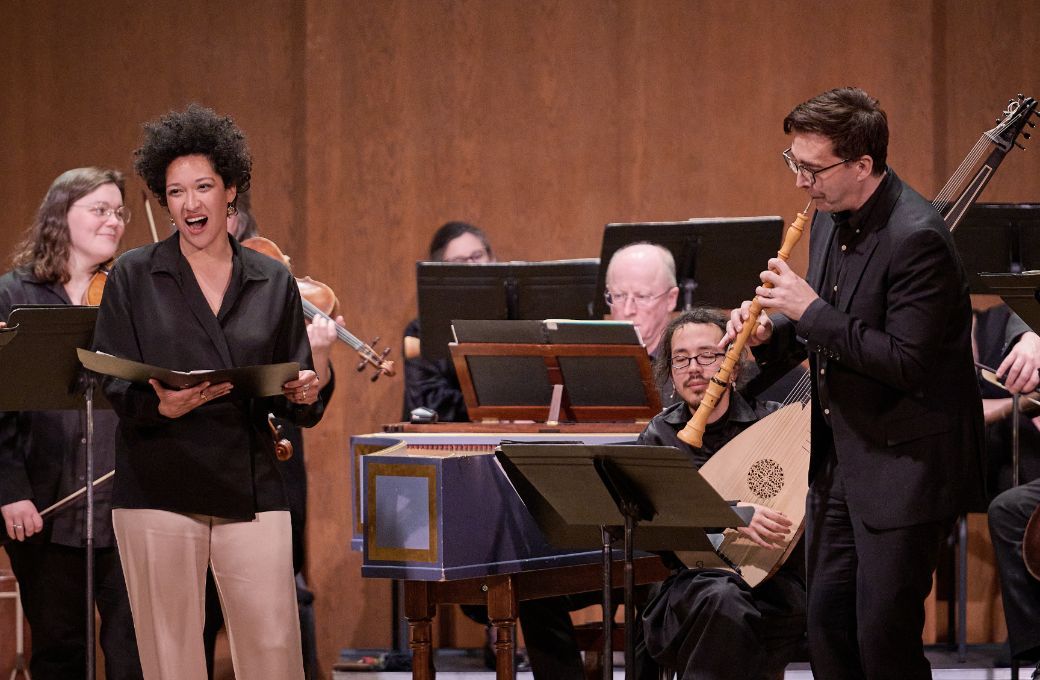A fellow reviewer described an earlier performance of this program as one of “Baroque chestnuts”, a member of the Orchestra of the Age of Enlightenment announced proudly between pieces—adding that most of these works had been forgotten and rediscovered, some more recently than one might imagine. The orchestra, along with guest soprano Julia Bullock, were inviting us to listen to these pieces with fresh ears.

Especially if you’re old enough to have first heard these pieces before the historically informed performance movement blossomed late last century, this was not a difficult invitation to accept. The performances were invigorating, the interpretations rewarding. Pachelbel’s inescapable Canon in D major, as just one example, was the fastest I have ever heard, spritely and dancelike in its original configuration for three solo violins and continuo.
Recreating Baroque practice, the orchestra performed standing (except for the cellos and continuo players), and had no conductor, with first violinist Kati Debretzeni, also credited as “director”, setting tempos and acknowledging performers. The continuo parts were realized on harpsichord and archlute. The oboists, bassoonist and percussionist performed on Baroque versions of their instruments.
Bullock’s five solos, mostly Handel arias, bracketed the program. Her polished wood and silver sound is very suited to this material; she has the necessary agility for the punishing melismatic passages, power in the lower range, tasteful restraint in ornamentation and an unaffected stage presence graced with a sly sense of humor. Besides the Handel, she included Barbara Strozzi’s “Che si può fare?”, which is by way of becoming a sort of emo-Baroque anthem. Bullock styled it very differently from the later pieces, with less vibrato and more rhythmic liberty, to arresting effect. (Her other non-Handel piece, Purcell’s mournful “If Love’s a Sweet Passion”, was sandwiched inexplicably between two boisterous pieces of incidental music from French operas by Lully and Rameau in the evening’s only continuous medley.)
The evening’s other soloist was Debretzeni, who took the lead in Spring from Vivaldi’s The Four Seasons. If her performance was not the most technically precise I’ve ever heard, it was certainly one of the most infectiously engaging. And she took the second movement of Bach’s Brandenburg Concerto no. 3, which consists in the score of two chords, as an opportunity to insert a solo cadenza leading up to them, as some think Bach might have done from the harpsichord at the premiere.
The program was supposed to have included Purcell’s Sonata for Trumpet in D major, but the orchestra’s trumpeter had sadly been hospitalized after an accident earlier in the tour. They substituted the slow movement from another Vivaldi concerto, this one for two cellos, with Andrew Skidmore and Catherine Rimer as soloists. Like the selections from Telemann’s Wassermusik, this was not a piece I was acquainted with, but it’s one I want to hear again. While listening to familiar music with fresh ears is a worthwhile experience, I appreciate having some novelty spicing up my chestnuts.


